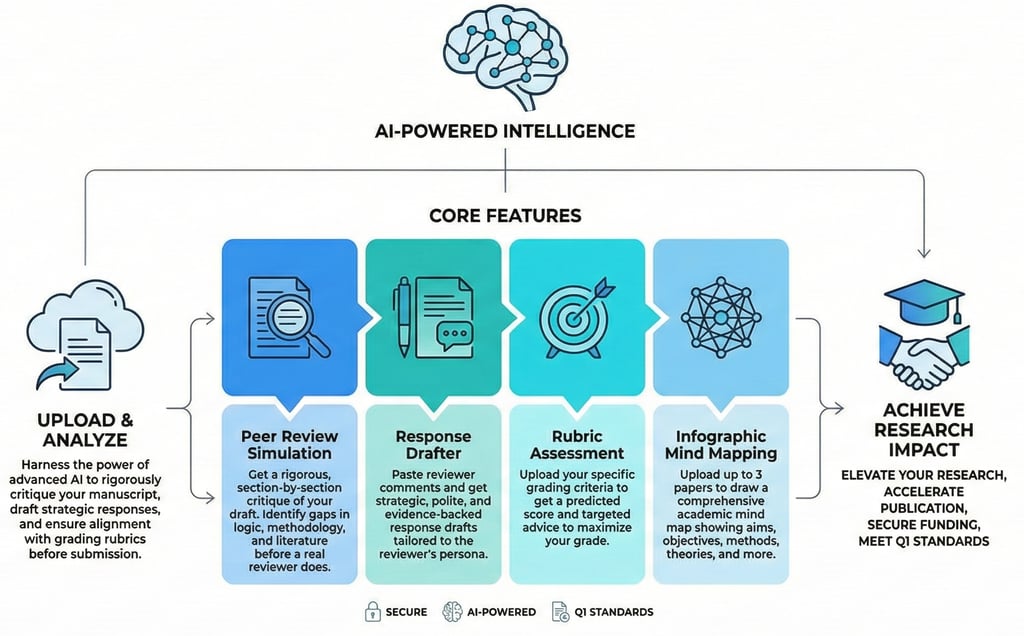Academic Peer Review Co-Pilot
Get a realistic, data-rich peer review before you submit—and clear guidance on how to answer real reviewer reports. The Peer Review Co-Pilot helps you spot weaknesses, prioritize revisions, and reply with confidence.
The Academic Peer Review Co-Pilot is your companion for the most stressful part of the publication journey: peer review. It reads your manuscript the way a reviewer would, highlights its strengths and weaknesses, and suggests concrete next steps.


Contact
Questions? Reach out anytime.
© 2025. All rights reserved.
